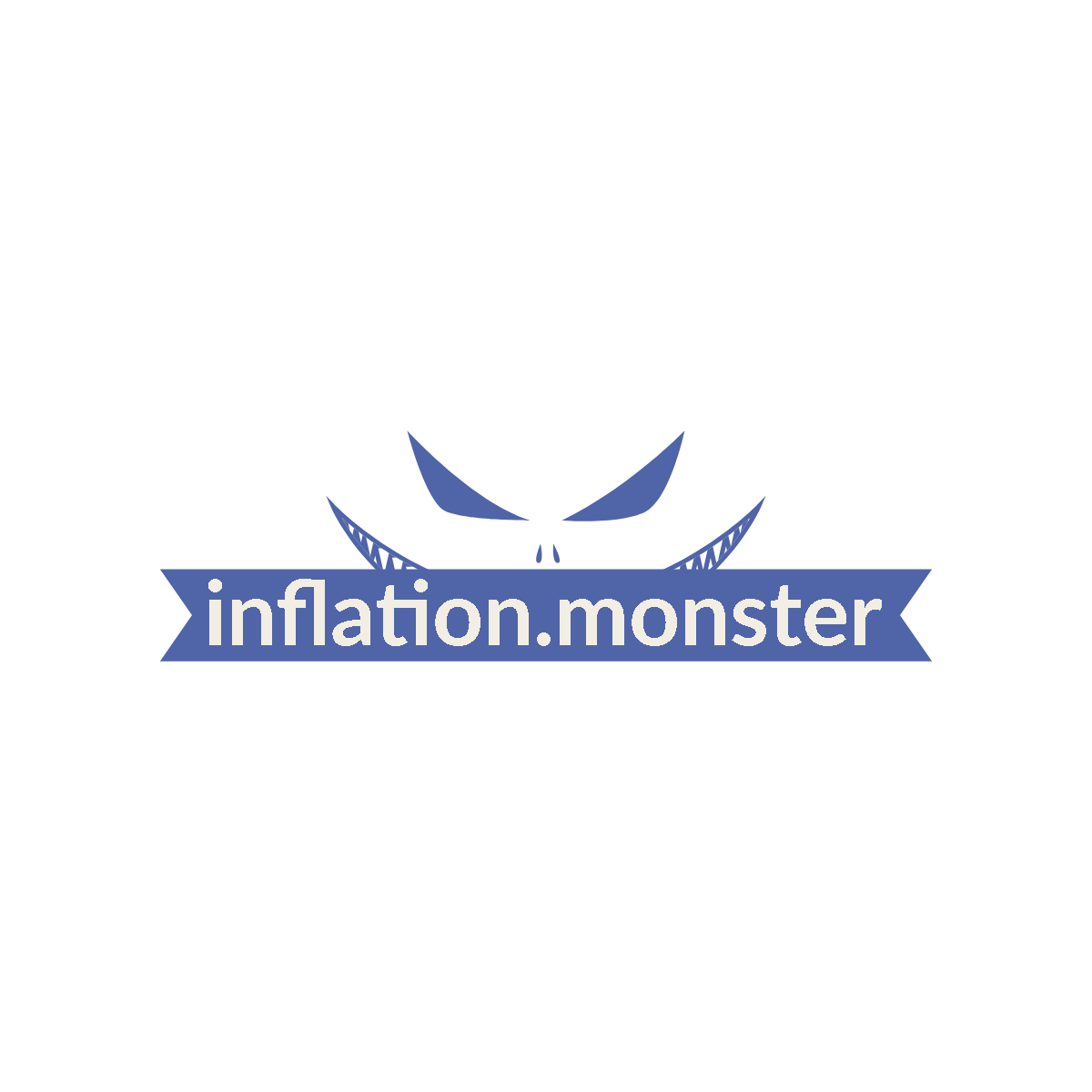Inflation, a term that has gained much attention in recent times, has far-reaching implications for the future of work and labor trends. As the world grapples with rising prices and economic uncertainties, it becomes crucial to understand the complexities of inflation and its impact on the workforce. In this article, we aim to shed light on the interplay between inflation and the future of work, exploring the labor trends that may emerge in response to this ever-present monster. Join us as we unravel the mysteries of inflation and equip you with the knowledge to navigate the evolving landscape of the job market.

The Rise of Inflation
In recent years, inflation has become a topic of increasing concern in the world of economics. To truly understand the implications of this phenomenon, it is essential to analyze its historical context, explore its causes, and evaluate its effects on the economy.
Historical analysis of inflation
Throughout history, inflation has been a recurrent economic pattern, with numerous episodes of varying severity. From ancient civilizations to modern times, societies have experienced periods of rapid price increases, often resulting in significant socioeconomic disruptions. Understanding these historical trends can provide valuable insights into how inflation has evolved over time and shed light on its potential future impact.
Causes of inflation
The causes of inflation are multi-faceted and can be attributed to a combination of economic, social, and political factors. One major driver of inflation is an increase in the money supply. When there is more money in circulation, the purchasing power of each unit of currency decreases, leading to rising prices. Other causes include supply and demand imbalances, including shortages of key resources or increases in production costs. Additionally, government policies and actions, such as excessive fiscal spending or changes in monetary policy, can also contribute to inflationary pressures.
Effects of inflation on the economy
Inflation can have a profound impact on the overall economy, affecting various sectors and stakeholders. One primary consequence is a decrease in the purchasing power of consumers’ income. As prices rise, individuals and households find it more challenging to afford goods and services, leading to a decline in their standard of living. Furthermore, inflation can erode the value of savings, making it difficult for individuals to plan for the future. Businesses may also be negatively affected, as higher production costs can squeeze profit margins and hinder investment. Finally, inflation can create income disparities, with certain groups, such as those on fixed incomes, feeling the effects more acutely than others.
Labor Trends in an Inflationary Economy
Inflation not only impacts the overall economy but also has significant implications for the labor market. Understanding how inflation affects wages, employment patterns, and job security is crucial for individuals navigating these uncertain times.
Impact of inflation on wages
In an inflationary economy, wages often struggle to keep pace with rising prices. As the cost of living increases, workers’ purchasing power diminishes, diminishing their overall financial well-being. Additionally, employers may be less willing to give substantial wage increases, as they contend with higher production costs. This can result in stagnant wages and increased financial strain for workers.
Changes in employment patterns
Inflation can also lead to shifts in employment patterns. During periods of high inflation, some industries may struggle to remain profitable, resulting in layoffs or closures. Conversely, other sectors may experience increased demand as consumers seek more affordable alternatives. As a result, workers may need to adapt to changing market conditions and consider transitioning to industries that are less impacted by inflation.
Inflation’s influence on job security
Job security can be significantly affected by inflationary pressures. Companies faced with higher production costs may be forced to downsize their workforce or implement cost-cutting measures, leading to a less secure job environment. Additionally, inflation can create economic volatility, causing businesses to become more cautious and hesitant to hire, further contributing to job insecurity.

Inflation and Job Market Demand
The dynamic relationship between inflation and job market demand is another critical aspect to consider. As inflation increases, it influences the demand for specific types of jobs and drives changes in the labor market.
Shifts in labor market demand during inflation
In an inflationary environment, the demand for certain jobs may decrease or increase, depending on the underlying causes of inflation. Industries heavily reliant on imports or those with high production costs may experience reduced demand, leading to job losses. On the other hand, sectors related to essential goods and services that are less prone to inflationary pressures may experience increased demand.
Industries affected by inflation
Certain industries are particularly vulnerable to inflation’s effects. Sectors such as construction, transportation, and manufacturing, which rely heavily on raw materials and energy, can be greatly affected by rising prices. Additionally, industries that cater to discretionary spending, such as travel and hospitality, may also face challenges as consumers reduce their expenditures in the face of inflation.
Changing skill requirements
With shifts in job market demand, the skills and qualifications needed by workers can also change. Inflationary pressures may drive companies to seek more cost-effective solutions, leading to increased automation and the adoption of advanced technologies. As a result, workers may need to develop new skills or enhance their existing ones to remain competitive in the job market.
The Role of Technology in an Inflationary Economy
Inflation and technological advancements often go hand in hand, with each influencing the other. Understanding the impact of technology on jobs and how it interacts with inflation is crucial for individuals and policymakers alike.
Automation and its impact on jobs
Technological advancements, particularly in automation, can significantly affect the availability and nature of jobs in an inflationary economy. Automation can streamline processes and reduce production costs, which can help businesses manage inflationary pressures. However, it can also lead to job displacement, as machines take over repetitive or low-skilled tasks traditionally performed by humans.
Technological advancements and inflation
Technology can both exacerbate and mitigate inflationary pressures. On one hand, innovations in production techniques and resource extraction can help reduce costs and alleviate inflationary pressures within certain sectors. On the other hand, advancements in technology can increase demand for certain resources, driving up prices and fueling inflation in specific industries. Additionally, the increasing cost of technological infrastructure and research and development can contribute to inflation.
Adapting to technology-driven changes
To thrive in an inflationary economy shaped by technology, individuals and organizations must be willing to adapt and embrace change. Workers need to continuously upskill and reskill to meet the changing demands of the job market. Policymakers and educational institutions should also play a role in preparing individuals for a technology-driven labor landscape by providing training programs and fostering a culture of lifelong learning.

Inflation’s Effects on Workers’ Well-being
The impact of inflation extends beyond the economy and can significantly affect workers’ well-being. Understanding how inflation affects the cost of living, income inequality, and strategies for mitigating its adverse effects is crucial for promoting the welfare of individuals and communities.
Impact on cost of living
Inflation directly affects the cost of living by increasing the prices of goods and services. As prices rise, workers’ purchasing power decreases, making it more challenging to afford essential items such as food, housing, and healthcare. Individuals and families may have to make difficult financial decisions and adjust their spending habits to cope with the rising cost of living.
Income inequality and inflation
Inflation can exacerbate income inequality within society. Those with lower incomes, who may not have access to inflation-protected assets, are particularly vulnerable to rising prices. As the cost of living increases, the gap between the rich and the poor can widen, creating socioeconomic disparities and limiting upward mobility for certain groups.
Strategies for mitigating inflation’s adverse effects
To mitigate the adverse effects of inflation, individuals can employ various strategies. Diversifying income streams through side gigs or investments can help offset the impact of rising prices. Saving and investing in inflation-protected assets, such as Treasury Inflation-Protected Securities (TIPS), can also safeguard against inflation eroding the value of savings. Additionally, advocating for policies that address income inequality and promote economic stability can help create a more resilient and equitable society.
The Gig Economy and Inflation
The rise of the gig economy has coincided with the growing concerns around inflation. Understanding how inflation impacts gig workers and the advantages and disadvantages of participating in the gig economy is essential for those considering this type of work arrangement.
Growth of gig economy amidst inflation
Inflationary pressures can contribute to the growth of the gig economy. As traditional employment opportunities become less stable, individuals may turn to gig work as a means to navigate uncertain economic times. The gig economy provides flexibility and the opportunity to diversify income streams, which can be particularly appealing during periods of inflation.
Advantages and disadvantages for gig workers
Gig work offers certain advantages for workers, such as flexibility and autonomy. Individuals can choose when and where to work, allowing them to navigate the challenges of inflation and adapt to changing market conditions. However, gig workers often lack employment benefits, such as healthcare coverage and retirement plans, which can leave them more vulnerable to the financial impacts of inflation.
Inflation’s impact on gig workers’ income
Gig workers are not immune to the effects of inflation on income. As prices rise, their earning power may be diminished if they are unable to pass on increased costs to clients or customers. Like traditional workers, gig workers also face challenges in maintaining their standard of living and meeting their financial obligations in the face of inflation.
Inflation and Job Mobility
Inflationary periods can influence workers’ decisions regarding job mobility and career choices. Understanding the relationship between inflation and job switching, as well as the impact on job market volatility and career planning, is crucial for individuals aiming to navigate a dynamic labor market.
Workers’ tendency to switch jobs during inflation
Inflation can influence workers’ decisions to switch jobs. As prices rise and wages struggle to keep pace, individuals may seek new employment opportunities that offer higher salaries or better opportunities for advancement. Job switching can provide these workers with a chance to secure more competitive compensation packages amidst inflationary pressures.
How inflation affects career choices
Inflation can also influence individuals’ career choices. In high-inflation environments, certain industries may prove more resilient or offer better remuneration, attracting workers seeking stability and financial security. Individuals may be more inclined to pursue careers in sectors less prone to inflationary pressures to ensure steady wages and job security.
Job market volatility and career planning
Inflation can create significant volatility in the job market, influencing career planning and decision-making. Rapid shifts in labor demand and changes in industry dynamics can require individuals to be agile and vigilant in assessing market conditions. Planning for multiple career paths, developing transferable skills, and staying informed about industry trends can help individuals navigate the challenging job market volatility associated with inflationary periods.
Education and Training in an Inflationary Economy
As the labor market evolves in response to inflation, education and training must adapt to meet changing labor demands. Understanding the relevance of education, the importance of adapting educational practices, and the need for upskilling and reskilling is crucial for individuals and educational institutions.
Relevance of education in an inflationary job market
Education plays a critical role in preparing individuals for the labor market, particularly during inflationary periods. It equips workers with the skills and knowledge needed to adapt to changing job requirements and market conditions. Continuous education can help individuals remain competitive, enhance their earning potential, and navigate the challenges associated with inflation.
Adapting education to changing labor demands
Inflationary pressures can drive changes in labor demands, necessitating the adaptation of educational practices. Educational institutions should strive to align their curriculum with emerging job market trends, ensuring that students are equipped with the skills and knowledge needed to succeed in a changing labor landscape. Collaboration between educational institutions and the industry can help ensure relevant and up-to-date educational programs.
Upskilling and reskilling in response to inflation
To thrive in an inflationary economy, individuals must be willing to upskill and reskill. As the job market evolves, workers need to continuously update their skills or acquire new ones to remain competitive. Upskilling programs and initiatives can help workers adapt to changing labor demands and enhance their employability. Additionally, reskilling efforts can assist individuals in transitioning to new careers or industries less affected by inflationary pressures.
Government Policies and Inflation
Government intervention plays a crucial role in addressing inflation and its impact on the labor market. Understanding the role of monetary and fiscal policies, as well as government intervention in the labor market, is essential for promoting stability and mitigating the effects of inflation.
Role of monetary policy in controlling inflation
Central banks and monetary authorities use various tools to control inflation. These may include adjusting interest rates, managing the money supply, and implementing other measures aimed at promoting price stability. Effective monetary policy can help curb inflationary pressures, promote business and consumer confidence, and provide a favorable environment for job creation.
Fiscal policies to address inflation’s impact on labor
In addition to monetary policy, governments can implement fiscal policies to address the impact of inflation on the labor market. These may include measures such as tax incentives for businesses, direct investment in strategic sectors, and social welfare programs aimed at mitigating the effects of inflation on vulnerable populations. A balanced and targeted fiscal approach can help support economic stability, maintain job market confidence, and address income disparities arising from inflation.
Government intervention in the labor market
Inflationary periods may necessitate government intervention in the labor market to promote stability and protect workers. Governments can implement policies such as minimum wage legislation, regulation of working conditions, and support for job creation initiatives. Additionally, social safety nets and retraining programs can help mitigate the impacts of inflation on workers and provide them with opportunities for career transitions.
The Future of Work in an Inflationary Economy
As inflation continues to shape the global economy, it is paramount to anticipate the shifts in the job market, understand the challenges and opportunities for workers, and prepare for a dynamic labor landscape.
Anticipated shifts in the job market
Inflationary pressures are likely to continue shaping the job market in the future. Technological advancements, changing consumer demands, and evolving economic landscapes will influence the types of jobs available and the skills needed to secure them. Anticipating these shifts and proactively adapting to new market conditions will be crucial for individuals seeking long-term career success.
Challenges and opportunities for workers
The future of work in an inflationary economy presents both challenges and opportunities. The rising cost of living and income inequality can pose significant challenges for workers. However, new industries, emerging technologies, and changing market dynamics can also create opportunities for career growth and financial success. Adapting to technological advancements, upskilling, and remaining agile in the face of evolving job market demands will be critical for individuals to leverage these opportunities.
Preparing for a dynamic labor landscape
Preparing for a dynamic labor landscape requires a proactive and future-oriented mindset. Individuals need to embrace continuous learning and development, remaining open to acquiring new skills and expanding their knowledge base. Collaboration between educational institutions, industries, and governments is crucial in equipping individuals with the tools needed to thrive in an inflationary economy. By anticipating future trends and taking proactive steps, workers can position themselves for success in a world shaped by inflation.
In conclusion, understanding the rise of inflation, its historical context, causes, and effects, is essential for comprehending its impact on labor trends, job market demand, workers’ well-being, and the future of work. As technology advances, job mobility fluctuates, and educational systems adapt, workers must navigate the complexities of inflation and prepare for a rapidly changing labor landscape. By staying informed, upskilling, and maintaining a resilient outlook, individuals can position themselves to thrive in an inflationary economy and embrace the future of work.




